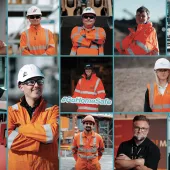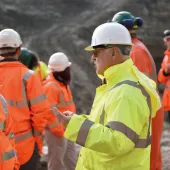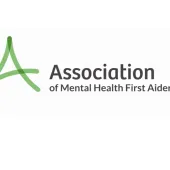Call for further government engagement in mental health

Mates in Mind welcomes Stevenson-Farmer independent review and calls for further government engagement
IN January 2017, the British Safety Council helped to launch the Mates in Mind charity programme, which provides information, support and training on mental health for the construction industry.
It, too, has welcomed the publication of the Stevenson-Farmer independent review into workplace mental health and restated its objective to improve the mental well-being of workers in the UK construction industry.
The review, ‘Thriving at Work’, calls for action to tackle the high-levels of poor mental well-being that UK workers are suffering. It found that in many workplaces, mental health remains a taboo subject and that consequently opportunities are being missed to provide employees who are struggling, with the help and support that they need.
To address this, the report has outlined six key principles that all employers should adopt as a basis for effectively managing workplace mental health. These recommendations highlight the need for companies – irrespective of scale and scope – to encourage a more open and transparent organizational culture that breeds greater knowledge of the issue as well as provision to monitor progress of its effective management.
Since its launch in January 2017, Mates in Mind has been working with the UK construction industry to make progress on the issues the report identifies by raising awareness, addressing the stigma of poor mental health and improving positive mental well-being.
Specifically, it uses a framework consisting of four key elements, which together provide a joined-up approach that can be tailored to a company’s specific needs. These are:
- Guidance and support: offering guidance on specific employee issues to creating stress- management policies through to connecting the workforce to appropriate support at the right time – Mates in Mind helps companies create and implement a mental health at work plan
- Awareness and education: helping to develop mental health awareness throughout the industry – from encouraging open conversation throughout the workforce to helping leaders and managers understand their roles in creating mentally healthy work environments
- Communication: helping to ensure an organization’s commitment to positive mental health and well-being remains visible and relevant, from targeted communication materials to supporting organizations in monitoring employee mental health and well-being
- Research and development: developing industry-leading research to understand the nature and impact of mental health, and to ensure development of effective, robust and sustainable solutions.
Commenting on the launch of the report, Steve Hails of Tideway and chair of Mates in Mind said: ‘Mates in Mind welcomes the recommendations set out in the Stephenson-Farmer report. With the direct support and financial investment from the UK construction industry and the British Safety Council, it has already started to make inroads into tackling the issues that the report so starkly highlights.
‘As an example of the issue, the sad reality is that suicide rates in construction are more than 3.5 times the national average. This industry, which contributes 6% to the nation’s GDP, is reliant on people who are at most significant risk – and we need to take even greater care of them.
‘The UK construction industry has embraced Mates in Mind and its roll-out across the sector is gathering momentum. This is because it provides a framework that is clear, joined-up and collaborative, which enables companies to effectively get to grips with a challenge that is complex and sensitive.
‘In working with construction companies, Mates in Mind recognizes that businesses need to be enabled to do more, not simply being given more to do. We welcome the opportunity to work with the Government in taking these recommendations forward.’
Addressing the way Mates in Mind succeeds in incorporating the standards the review recommends for companies, Joscelyne Shaw, executive director of Mates in Mind, said: ‘The interaction between work and mental health is complex and sensitive, and is a challenge to employers. What the evidence shows is that stigma and associated discrimination remain significant barriers to addressing the issue.
‘We are helping construction companies to take steps to address both the human cost to construction workers and the financial cost to their businesses. We’re very fortunate that the construction industry has taken a stand to ensure mental health is included within the overall health agenda.’









